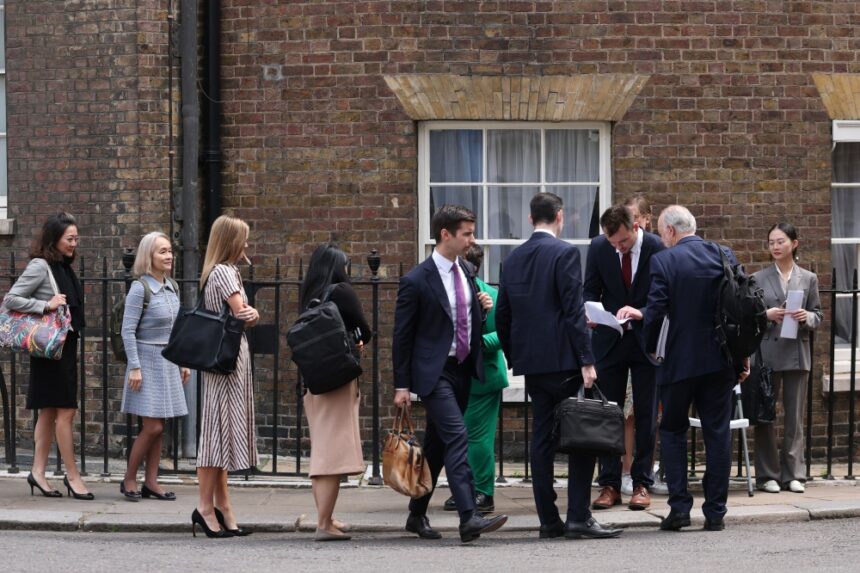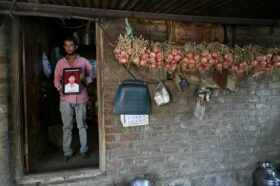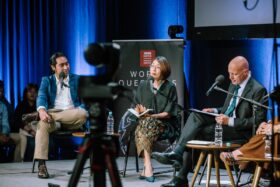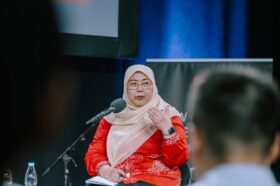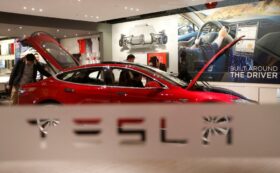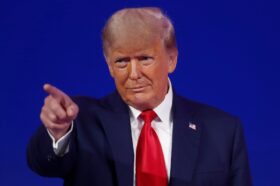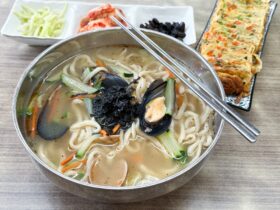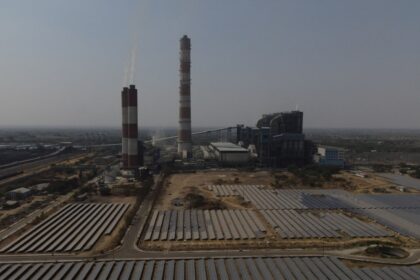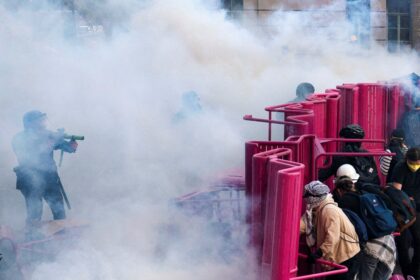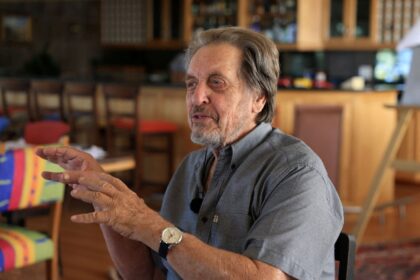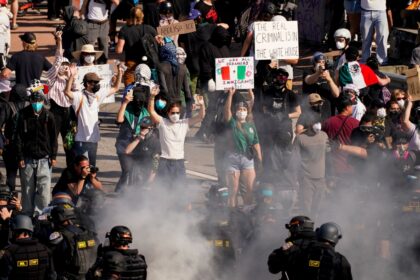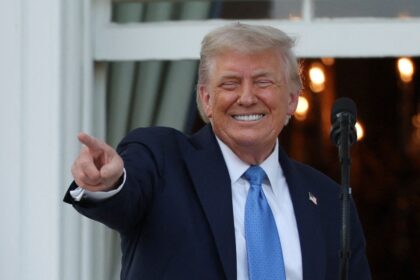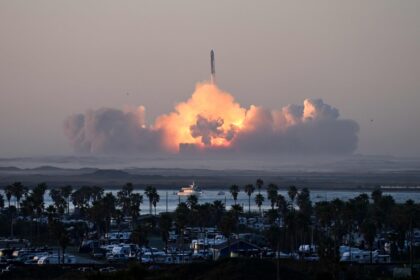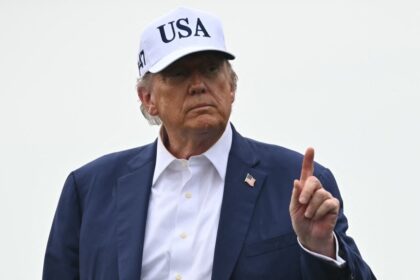LONDON, June 10 ¬— US-China trade talks were set to extend to a second day in London as top economic officials from the world’s two largest economies sought to defuse a bitter dispute that has widened from tariffs to restrictions over rare earths, threatening a global supply chain shock and slower economic growth.
Talks at Lancaster House, an ornate UK government mansion, wrapped for the night on Monday and were set to resume at 10am BST (0900 GMT) on Tuesday, a US source familiar with the negotiations said.
Washington and Beijing are trying to revive a temporary truce struck in Geneva that had briefly lowered trade tensions and calmed markets.
Since then, the US has accused China of slow-walking its commitments, particularly around rare earths shipments.
US President Donald Trump on Monday put a positive spin on the talks, saying that they were going well and he was “only getting good reports” from his team in London.
“We’re doing well with China. China’s not easy,” Trump said, offering no details on the substance of the discussions.
Asked about lifting export controls, Trump told reporters at the White House: “We’re going to see.”
White House economic adviser Kevin Hassett had said earlier on Monday that the US team wanted a handshake from China on rare earths after Trump said Chinese President Xi Jinping agreed to resume shipments in a rare call between the two leaders last week.
Hassett told CNBC in an interview that the US would expect export controls to be eased and rare earths released in volume immediately afterwards.
The London talks come at a crucial time for both economies, which are showing signs of strain from Trump’s cascade of tariff orders since his return to the White House in January.
Customs data showed that China’s exports to the US plunged 34.5 per cent year-on-year in May in value terms, the sharpest drop since February 2020, when the outbreak of the Covid-19 pandemic upended global trade.
In the US, business and household confidence has taken a pummelling, while first-quarter gross domestic product contracted due to a record surge in imports as Americans front-loaded purchases to beat anticipated price increases.
So far, the impact on inflation has been muted and the jobs market has remained fairly resilient, though economists expect cracks to become more apparent over the summer.
Attending the talks in London are US Treasury Secretary Scott Bessent, Commerce Secretary Howard Lutnick and US Trade Representative Jamieson Greer. The Chinese contingent led by Vice Premier He Lifeng includes Commerce Minister Wang Wentao and the ministry’s chief trade negotiator, Li Chenggang.
The inclusion of Lutnick, whose agency oversees export controls for the US, is one indication of how central rare earths have become. Some analysts saw it as a sign that Trump is willing to put recently imposed Commerce Department export restrictions on the table.
China holds a near-monopoly on rare earth magnets, a crucial component in electric vehicle motors.
Lutnick did not attend the Geneva talks at which the countries struck a 90-day deal to roll back some of the triple-digit tariffs they had placed on each other.
Meanwhile, the US court fight over an effort to invalidate Trump’s tariffs on goods from China and other trading partners advanced on Monday with the Trump administration filing arguments in its appeal of a US trade court’s ruling that the levies exceeded Trump’s legal authority.
The federal appeals court could rule at any time on the Trump administration’s request to keep the tariffs in place while the appeal proceeds. It could go all the way to the Supreme Court.
Positive conclusion
Trump and Xi spoke by phone last week, their first direct interaction since Trump’s January 20 inauguration.
During the call, Xi told Trump to back down from trade measures that roiled the global economy and warned him against threatening steps on Taiwan, according to a Chinese government summary.
But Trump said on social media the talks focused primarily on trade led to “a very positive conclusion,” setting the stage for Monday’s meeting in the British capital.
The next day, Trump said Xi had agreed to resume shipments to the US of rare earths minerals and magnets. Reuters reported that China granted temporary export licenses to rare-earth suppliers of the top three US automakers.
Export restrictions
China’s decision in April to suspend exports of a wide range of critical minerals and magnets upended the global supply chains central to automakers, aerospace manufacturers, semiconductor companies and military contractors.
Kelly Ann Shaw, a former White House trade adviser during Trump’s first term and now a trade partner at the Akin Gump law firm in Washington, said she expected China to reaffirm its commitment to lift retaliatory measures, including export restrictions, “plus some concessions on the US side, with respect to export controls measures over the past week or two.”
But Shaw said she expected the US to only agree to lift some new export curbs, not longstanding ones such as for advanced artificial intelligence chips. In May, the US ordered a halt to shipments of semiconductor design software and chemicals and aviation equipment, revoking export licenses that had been previously issued.
The preliminary deal in Geneva sparked a global relief rally in stock markets, and US indexes that had been in or near bear market levels have recouped the lion’s share of their losses.
But Ian Bremmer, president of the Eurasia Group, said while a temporary truce was possible, there was little prospect for the bilateral relationship to become constructive given broader decoupling trends and continued US pressure on other countries to take China out of their supply chains.
“Everyone around Trump is still hawkish and so a breakthrough US-China trade deal is unlikely, especially in the context of other deals that are further along and prioritized,” he said in an analyst note. — Reuters
Source: 
US-China talks go into overtime in London with rare earths deal on the line; Trump upbeat

